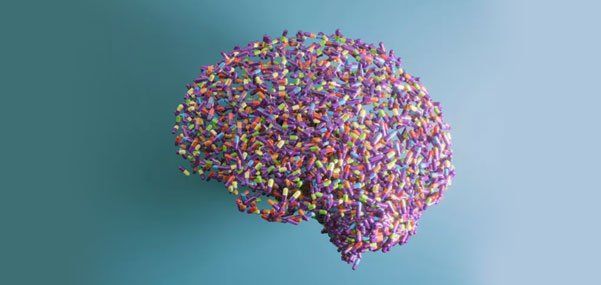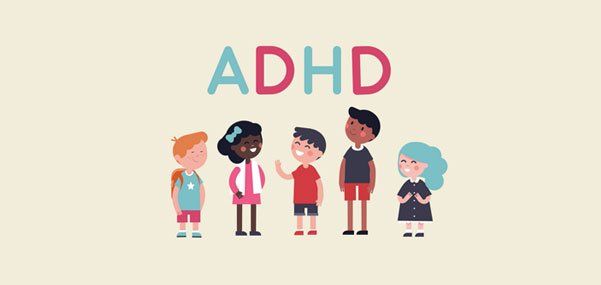Žirmūnų psichikos sveikatos centro naujienos
Naujienos ir pranešimai

Socialinė iniciatyva Skirtingos Spalvos pristato dešimtąją laidą ir jos pašnekovę – Justę Arlauskaitę-Jazzu. Šioje laidoje žinoma atlikėja kalbėjo apie emocinę sveikatą ir savižudybių prevenciją Itin atvirame pokalbyje Justė pasidalijo įvairiomis gyvenimo patirtimis apie santykius su žmonėmis, vaikystėje išmoktas pamokas, ilgai trukusią kovą su priklausomybėmis, panikos atakomis, kelionę sveikimo link ir iš naujo užgimusią Justę, kuomet ant rankų pradėjo sūpuoti savo sūnų Majų. Kaip ir pati Justė laidos metu atviravo, kad gyvenime atlikėja save suprato kaip balsą, o kai jį staiga prarado, nebematė tikslo toliau gyventi, jautėsi nereikalinga nei sau, nei kitiems. Užtruko laiko save susirinkti ir suprasti, kad Justė nėra tik apie balsą. „Pradėjau remtis į kitus žmones, ieškoti pagalbos, kurios nėra gėda ieškoti, tai yra drąsa prašyti pagalbos ir eiti šviesos link“, – atvirauja Justė.

Scientists have made a startling discovery. According to a new study researchers presented at the 35th Annual European College of Neuropsychopharmacology in Vienna, certain anti-depressants can cause drastic changes in the brain. In fact, they may even be able to rewire brains affected by major depressive disorder. Major depressive disorder, or MDD as I’ll refer to it from here out, is a mental health disorder that is characterized by persistent depressing moods, dark thoughts, and a general loss of interest in any activities. It can cause major impairment in the daily lives of people affected by it. Now, though, we may be able to treat it by using certain anti-depressants to change how the brain is wired. In the past, researchers have found that anti-depressants and even behavioral therapy and electroconvulsive therapy just don’t work for everyone that suffers from MDD. However, a group of researchers in Germany are now claiming that anti-depressants can change the brain structures themselves. However, they aren’t sure how long those changes will remain. Past studies have found that serious bouts of depression are often associated with a change in the volume of gray matter and white matter found within the brain. Each type of brain matter is associated with different functions of the body, and any changes in them can drastically change how our brains react. As such, being able to change the brain’s structure with anti-depressants is huge.

Years ago, Big Pharma had all but left psychiatry behind. Having undertaken large, disappointing failed trials they had hoped would lead to new and profitable treatments, big companies folded up their ambitious plans . But smaller biotech companies continued to plug away at research and development, hoping to create better treatments . And now, their labor may be paying off. That's according to Laura Gault, the chief medical officer at Sage Therapeutics, a Massachusetts-based company working to develop a new antidepressant drug, called zuranolone. The company recently asked US regulators to approve the drug as a treatment for people with postpartum depression and major depressive disorder, citing data that the drug improved symptoms of those disorders in patients. "Psychiatry is really on the cusp of having novel medicines that are really effective and work in different ways from what we've had," Gault said.

There’s no doubt that getting high can make you do some pretty dumb stuff, although the scientific community remains split over whether or not smoking too many joints causes lasting cognitive impairment. The latest research into this controversial subject has found evidence of a connection between excessive cannabis use and decreased dopamine levels in the brain, which could in turn lead to memory, attention, and problem-solving deficits. Dopamine is a neurotransmitter that plays a key role in the brain’s so-called reward center, and is released in response to pleasurable stimuli like eating cake, having sex, and taking drugs. This is what makes many drugs so addictive (and cake so irresistible), although research suggests that excessive use of these substances causes a dopamine imbalance, with lower concentrations of the chemical being released in parts of the brain such as the striatum. Importantly, dopamine deficits in the striatum have been associated with reduced cognitive performance . Given that THC – the active ingredient in cannabis – is known to stimulate dopamine neurons throughout the brain, lead researcher Anissa Abi-Dargham explained that “it is important to look more closely at the potentially addictive effects of cannabis on key regions of the brain.” To do so, she and a group of colleagues used a technique called positron emission tomography (PET) to examine the levels of dopamine released in the striatum of 11 cannabis-dependent people after receiving a dose of oral amphetamine, which stimulates the brain to release the neurotransmitter. The results – which are published in the journal Molecular Psychiatry – indicate that, compared to non-dependent subjects, these participants did indeed exhibit reduced dopamine levels.

Key Takeaways Researchers suggested that ADHD medications may alleviate some symptoms of Alzheimer’s disease. The drugs specifically helped improve cognition and apathy in Alzheimer's patients. Repurposing drugs could speed up the approval process and reduce the costs of having to develop an entirely new medication. Treatment options for Alzheimer’s disease are limited, but new research suggests that medications for attention deficit hyperactivity disorder (ADHD) may treat certain symptoms of Alzheimer’s. An analysis published in the Journal of Neurology Neurosurgery & Psychiatry reviewed 19 clinical trials on the use of noradrenergic drugs—often used to treat anxiety, depression, and ADHD—in people with neurodegenerative disease. Researchers found that these drugs can improve general cognitive performance and apathy, the most common neuropsychiatric symptom in Alzheimer’s patients. Related: Study: Flu Shots May Reduce the Risk of Alzheimer's Disease Michael C. B. David, the lead author of the study and a clinical research fellow at Imperial College London, said that current Alzheimer’s treatment only has “modest effects on symptoms.” Since existing research suggested that changes in Alzheimer’s patients first occur in the brain’s noradrenergic system, which regulates alertness and arousal, David and his team wanted to look into the effectiveness of the drugs that are designed for this system. The noradrenergic system affects the attention span in people with ADHD, David explained. “Patients with Alzheimer’s disease also struggle with attention, so we predicted this might be improved with these drugs,” he said. Related: Dementia Cases Expected to Triple by 2050 Limited Treatment Options for Alzheimer’s Disease Currently, treatments exist to delay or manage certain symptoms of Alzheimer’s, but there is no cure. Cholinesterase inhibitors, including Aricept (donepezil), Exelon (rivastigmine) , and Razadyne (galantamine), are approved to treat Alzheimer’s symptoms. These drugs may help stabilize or improve brain functions and delay the progression of symptoms for some patients. Aduhelm (aducanumab) is the only FDA-approved drug that targets the underlying cause of Alzheimer’s rather than its symptoms only. But Aduhelm is controversial : Some experts have argued that the clinical data didn’t actually show the drug helped slow cognitive decline, and the medication comes with the risk of serious side effects, such as brain swelling or bleeding. Related: Why Is the FDA Approval of a New Alzheimer's Drug So Controversial? Megan Maroney, PharmD , a clinical associate professor at the Ernest Mario School of Pharmacy at Rutgers University, told Verywell that in the early stage of Alzheimer’s, some of the cognitive functioning is “quite similar to what we see in an individual with ADHD, including difficulty with attention and short-term memory.” Maroney added that the noradrenergic drugs reviewed in the study are “sometimes used off-label for depression in elderly patients,” so it makes sense that they might be useful for Alzheimer’s patients as well. The current standard of care for Alzheimer’s is to “prevent further decline in cognition, not necessarily to improve it,” according to Maroney. “If we can find a medication that safely and effectively improves functioning, that would be a big step,” she said. Related: Study Finds Treating Depression in Dementia Patients Goes Beyond Drugs The Potential Benefits of Repurposing ADHD Drugs for Alzheimer’s Disease Amit Sachdev, MD , director of the division of neuromuscular medicine at Michigan State University, said that “the most important consideration is how a drug works rather than what it is approved for” as treatment options for Alzheimer’s are limited. “Many medications are initially improved for an easily measurable and relatively well-understood disease. As the brain is better understood, existing medications are often repurposed,” Sachdev said. If ADHD drugs were to be approved for use in Alzheimer’s patients, the process would be much faster than designing a new drug, Maroney noted. “Studying a brand-new medication can take years and years of development and study, which also carries a significant cost burden,” she said. “If we can repurpose a medication that is already on the market, we can start using it in patients much more quickly. It would simply be a matter of studying it for safety and efficacy in this target population. We’d already have a massive head start.” Related: Getting Too Little Sleep in Middle Age May up Your Dementia Risk What This Means For You A new study showed that ADHD drugs might improve cognitive abilities and apathy in Alzheimer’s patients. However, more research is needed to see if they could be added to the arsenal of drugs to treat Alzheimer’s disease. https://www.verywellhealth.com/adhd-drugs-for-alzheimers-disease-5705808

Krizinis laikotarpis kiekvieno žmogaus gyvenime – tai laikas, kuomet tvarkytis su sudėtingais, sukrečiančiais įvykiais ir išgyvenimais nebepakanka iki tol turėtų asmeninių resursų, prarandamas saugumo, kontrolės jausmas. Galimybė dalintis išgyvenimais ir patirtimi padeda atgauti emocinę pusiausvyrą.




